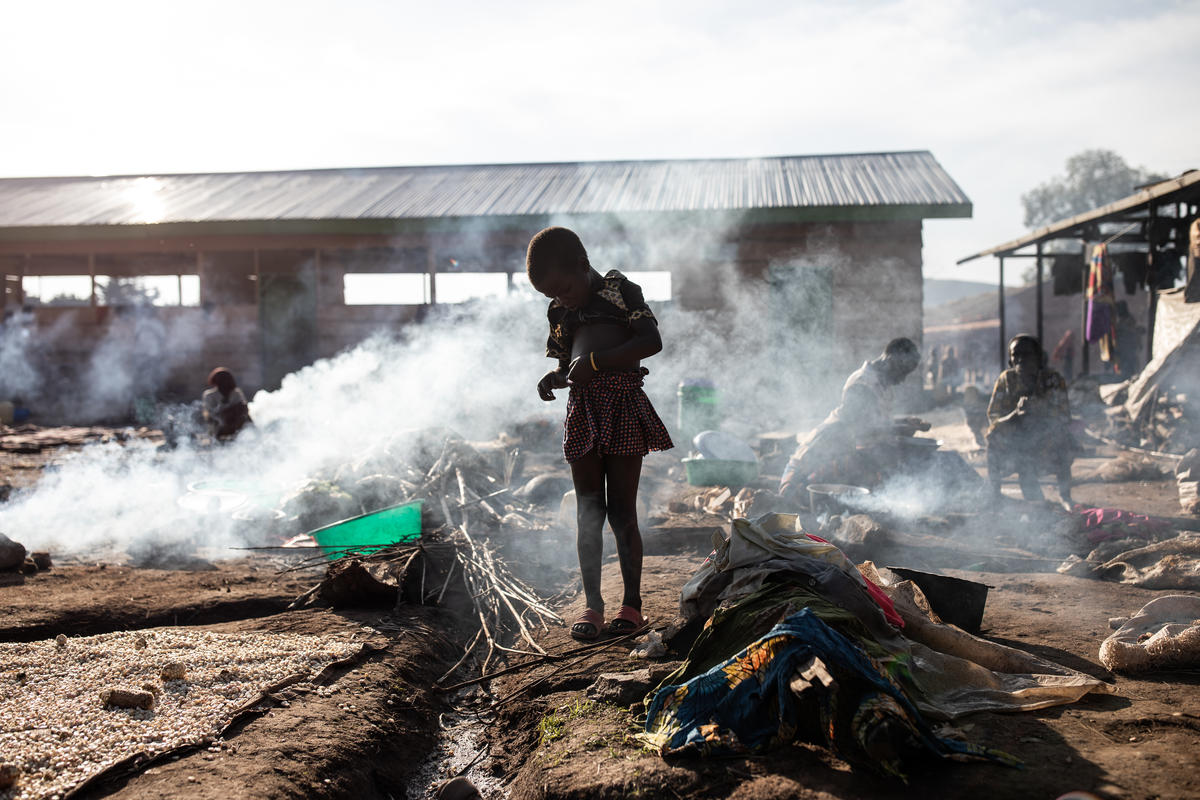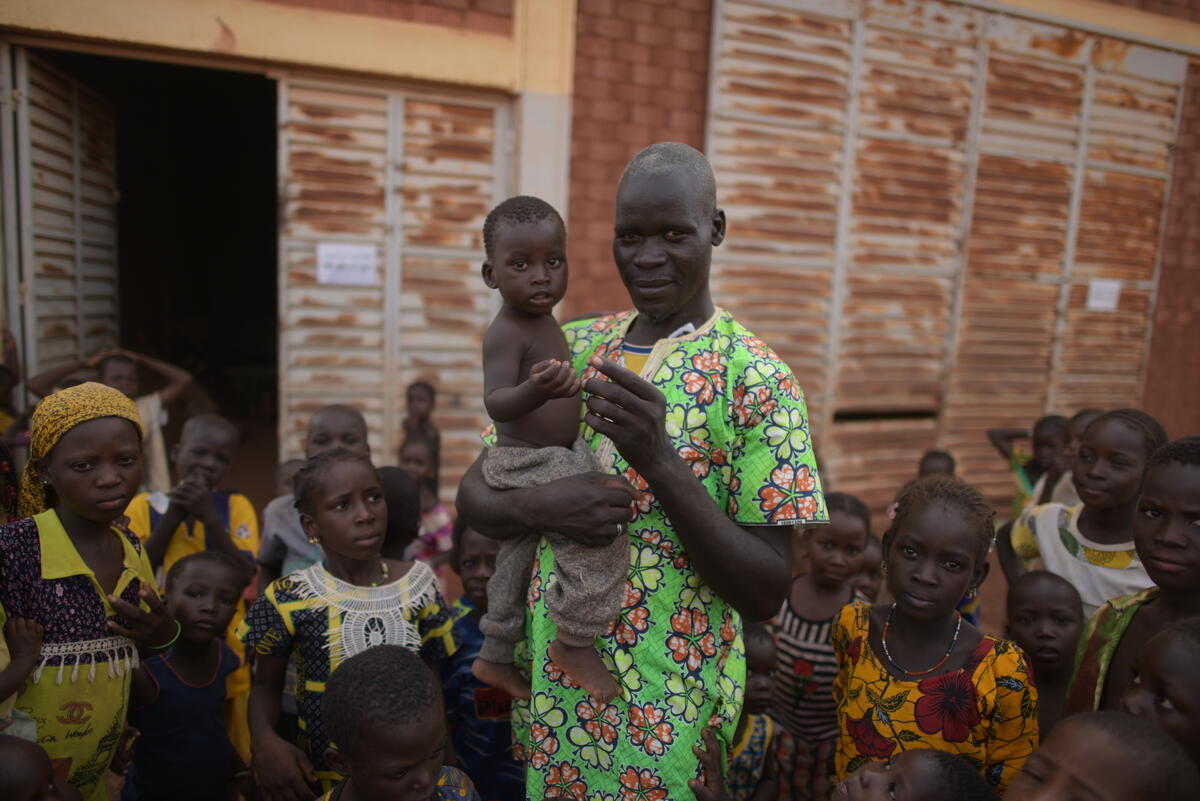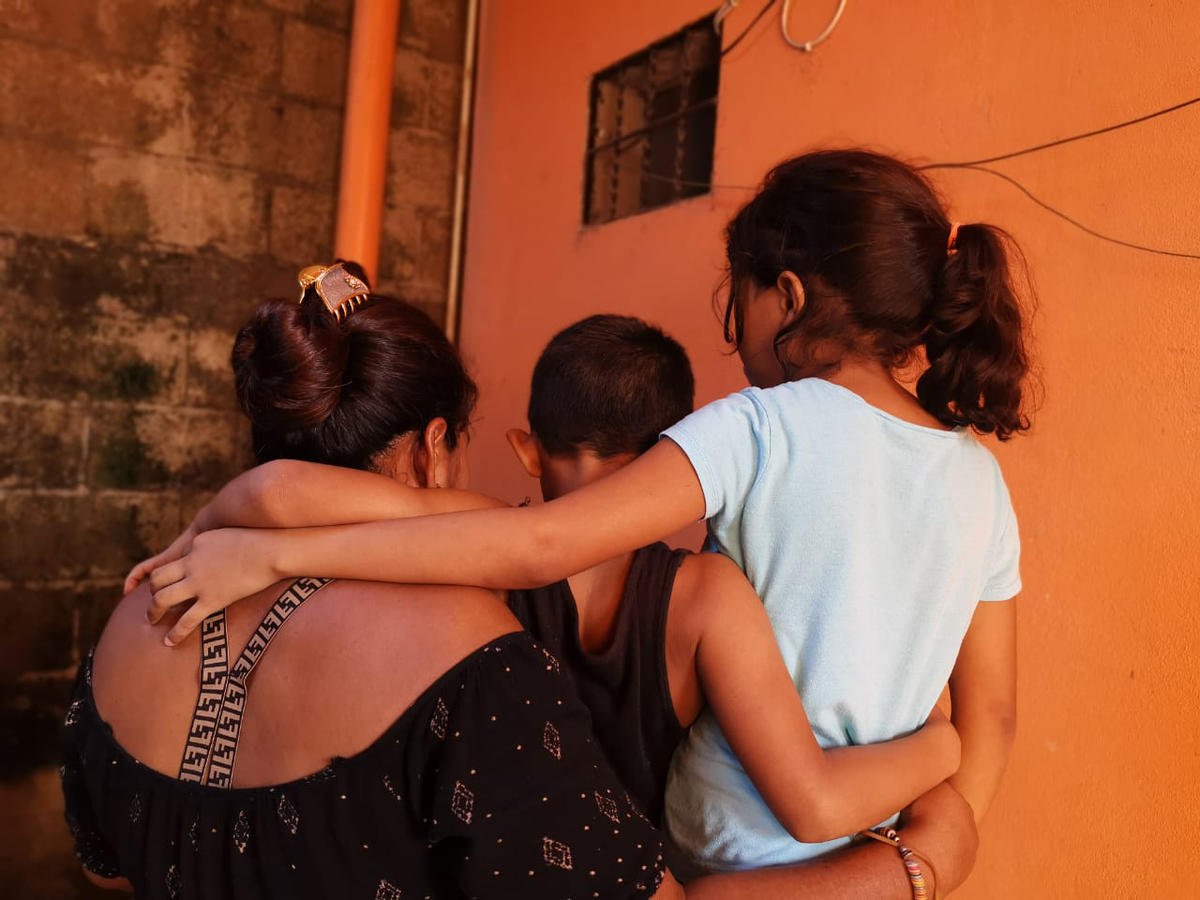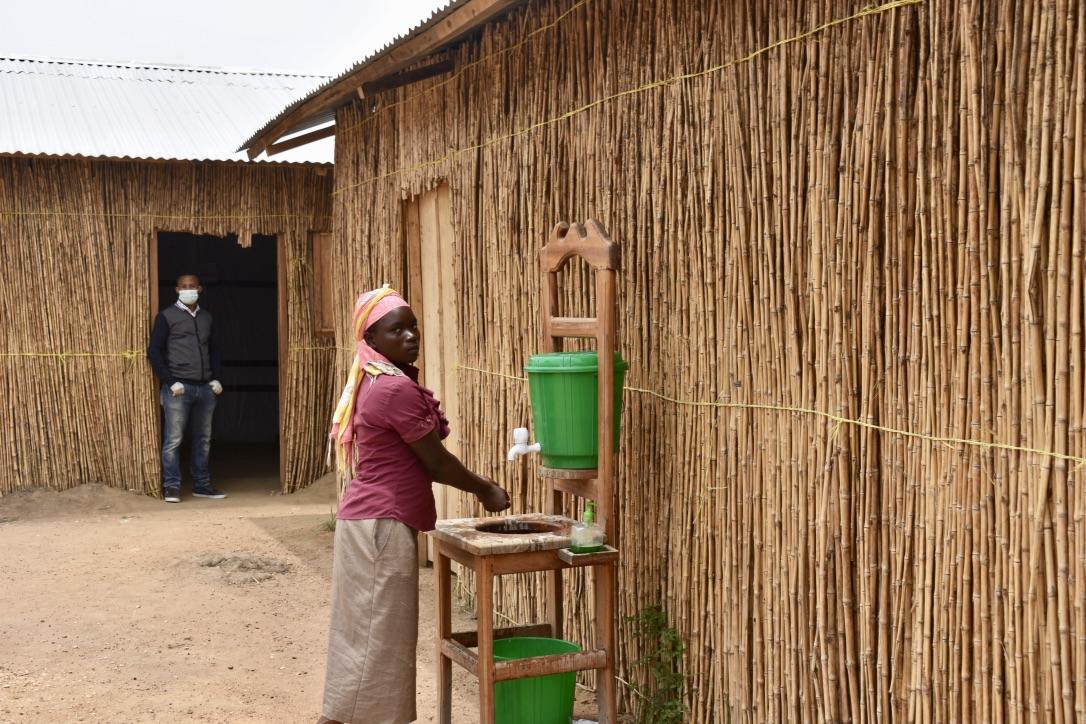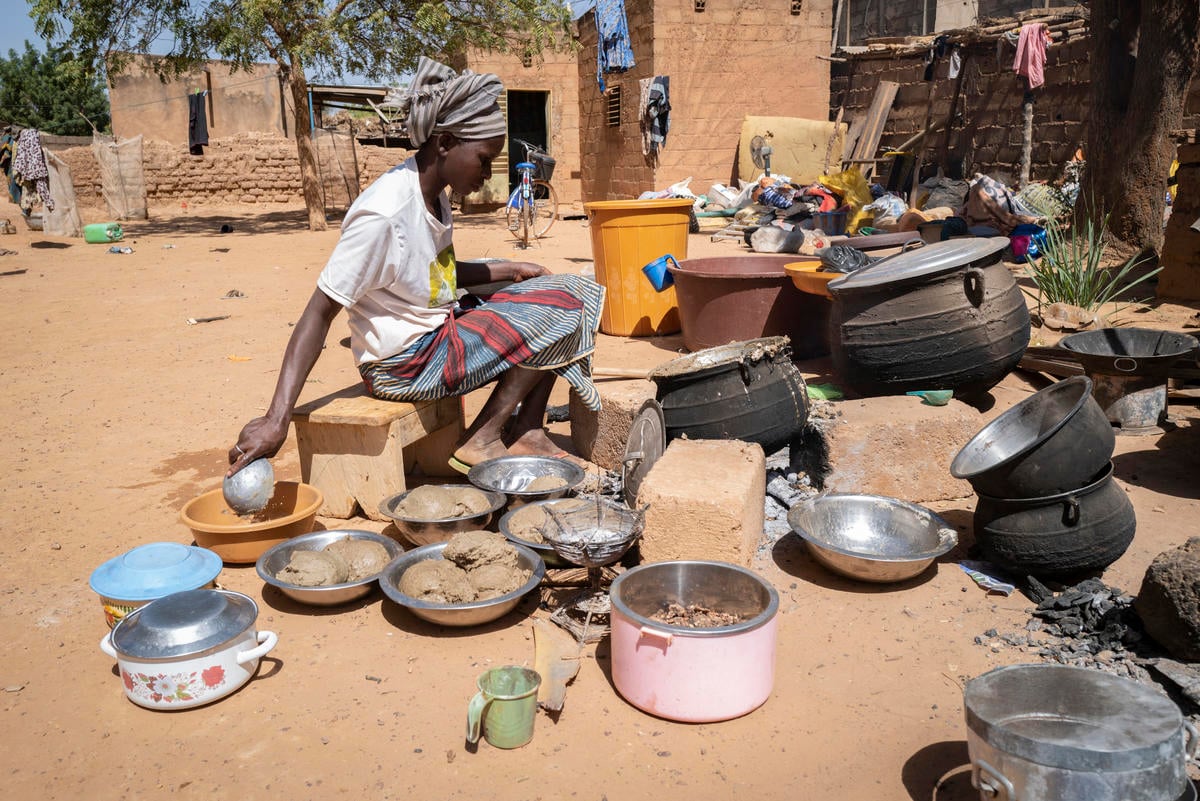Threat of expulsion hanging over Darfur refugees recedes but concerns about security in Chad remain
Threat of expulsion hanging over Darfur refugees recedes but concerns about security in Chad remain

ABECHE, Chad, April 18 (UNHCR) - Although still anxious about the recent political upheaval and fighting in Chad, Sudanese refugees from the troubled Darfur region breathed a sigh of relief on Monday after President Idriss Deby Itno assured High Commissioner António Guterres that Chad had no intention of forcibly returning them to their violent and insecure homeland across the border.
In a telephone conversation with the High Commissioner on Sunday night, President Deby expressed his concerns about the difficulty of providing security both to the 220,000 refugees and to humanitarian organisations helping them. In addition to the refugees, there are about 40,000 internally displaced persons in eastern Chad.
"UNHCR strongly appeals to the international community and its various organisations to do everything possible to urgently establish peace and security in Darfur, which is essential for the stability of the entire region," Guterres said in a statement on Monday. "It is also essential to preserve the security of refugees and internally displaced people in Darfur and Chad, and potentially in other countries of the region as well."
Recent security concerns have prompted UNHCR and its partners, as well as other UN organisations, to relocate non-essential staff from Chad. So far, some 35 UNHCR staff, out of a total of 280 national and international staff in the country, have been flown to Yaoundé, Cameroon, on two UN flights - one from the capital and the other from Abéché in the east.
"We are now trying to strike the right balance between continuing essential services to refugees in the camps, who feel reassured by our presence, as well as security precautions for our staff. This is an ongoing exercise, but there are no immediate plans for any further evacuation flights," spokeswoman Jennifer Pagonis told journalists in Geneva.
Meanwhile, the situation in the 12 refugee camps in eastern Chad is reported to be calm, with activities proceeding close to normal, albeit with about one third less staff than a week ago due to their relocation. The refugees themselves are largely responsible for many daily activities in the camps - schooling in particular. There have been no major problems with food or water. UNHCR staff are doing everything possible to keep refugees aware of developments affecting them and have invited them to share their concerns.
Reports that janjaweed militia from Sudan's Darfur region are close to Goz Amer refugee camp are a source of concern. Goz Amer camp, 95 km from the Sudan border, is home to over 17,000 refugees from Darfur. The camp was briefly occupied by a large armed rebel group from Chad on 10 April. A Chadian gendarme guarding the camp was killed and two other gendarmes injured. Around 117 humanitarian workers, including UNHCR, had to stay overnight at the camp. They were unharmed and managed to leave the next day.
"There is shooting in Darfur and there is also shooting in Chad," an oumda, or traditional leader, declared in Goz Amer refugee camp on Saturday, "and we find ourselves caught between the two sides. We are exposed to all kinds of dangers and the gendarmes charged with camp security will not be able to protect us from the attacks of the janjaweed. At any moment the janjaweed could come and kidnap any of the refugee representatives from the camp."
Another concern expressed by refugees and the local population is the rapid approach of the planting season; if insecurity prevents the planting of subsistence crops by the rainy season that begins in June, the effects could be catastrophic.
There are some 220,000 refugees from Sudan's strife-torn Darfur region in eastern Chad. UNHCR and its partners are assisting them and local host populations by improving living conditions - providing water, shelter, health care and education. There are also some 40,000 internally displaced persons in eastern Chad.
By Matthew Conway in Abéché, Chad
and William Spindler in Geneva


